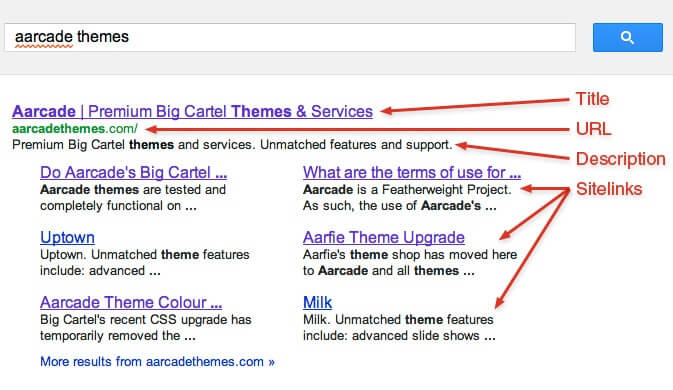In the world of online marketing, domain names are far more than just a web address; they can play a significant role in shaping the success of your website, particularly when it comes to Search Engine Optimization (SEO). SEO is a multi-faceted endeavor aimed at increasing your website’s visibility in search engine results for specific queries.
Although domain names are not the be-all and end-all of SEO, they can indeed have an impact on your search rankings and overall SEO strategy. In this article, we will delve deep into understanding how exactly a domain name affects SEO.
Keywords in Domain Names
A few years back, exact-match domains (EMDs), which are domain names that match a specific search query precisely, used to have a substantial impact on search engine rankings. However, Google updated its algorithm to reduce the weightage of EMDs, as many of these sites were spammy and provided poor-quality content.
That said, having a keyword in your domain name still provides some value, but it’s not as impactful as it once was. It does give users an idea of what your website is about, but you will need to back it up with high-quality content, proper on-page SEO, and a robust backlink profile.
Brandability and Memorability
A domain name that is easy to remember and spell can also aid in indirect SEO benefits. If users can remember your domain easily, they’re more likely to type it directly into their browser, thereby bypassing search engines altogether. This direct traffic is seen as a positive signal by search engines, showing that your site has brand authority.
Top-Level Domains (TLDs)
The Top-Level Domain (.com, .org, .net, etc.) you choose can have an impact, albeit minor, on your site’s SEO. Generally, .com is viewed as the most professional and reliable TLD. However, other TLDs like .org or .net can also rank well if the overall SEO strategy is solid. Some newer, niche TLDs like .blog or .tech might seem attractive but remember that users are less familiar with these, which could impact click-through rates (CTR) and, ultimately, SEO.
Domain Age and History
Search engines also consider the age and history of a domain name. Older domains with a consistent history of quality content and good user experience are generally seen as more reliable and trustworthy. If you are taking over an old domain, be sure to investigate its past. A domain with a checkered history of spammy practices could harm your SEO.
Localized Domains
For businesses that focus on local markets, a country-specific TLD can be beneficial. Google considers these domains to be more relevant for local searches. For example, a .uk domain may be given preference in Google.co.uk search results. However, this advantage is limited to the particular country and might not help in global search rankings.
HTTPS and SEO
Security is another factor that impacts SEO, and it starts with your domain. Google has confirmed that HTTPS, which stands for HyperText Transfer Protocol Secure, is a ranking factor. In simple terms, HTTPS encrypts the data transferred between a user’s computer and the server, thereby enhancing the site’s security. Many domain providers offer free HTTPS these days, so there’s no reason not to make the switch.
The Impact of Subdomains
Subdomains (like blog.example.com) are often used for blog platforms or different sections of a website. While these can be effective for organizational purposes, they are considered separate entities by search engines and have to earn their SEO value independently. On the other hand, subdirectories (like example.com/blog) share the SEO value of the main domain and might be a better choice depending on your strategy.
While a domain name alone won’t skyrocket you to the top of Google rankings, it is undoubtedly a piece of the puzzle. A strategically chosen domain can help in branding, user experience, and minor SEO benefits. However, it’s crucial to remember that the domain is just the starting point; a comprehensive SEO strategy requires high-quality content, on-page optimization, and a strong backlink profile among other factors. When these elements work in harmony, that’s when you’ll start to see real results.
User Experience and SEO
Let’s not forget the critical aspect of user experience. If your domain name is long, complex, or hard to remember, it can lead to mistypes and confusion. When users find it challenging to access your site, they’re likely to go back to the search engine results, increasing your bounce rate. High bounce rates can negatively impact SEO as it signals to search engines that the site might not be relevant or useful for the keyword query it ranks for.
Domain Renewal Length
Some SEO professionals speculate that the length of your domain registration could play a role in your site’s search engine ranking. The theory is that spammers usually register domains for a short period (typically one year), while more legitimate entities will commit to a longer registration period. While there’s no definitive evidence to support this theory, it’s something to consider, especially if you’re committed to your online venture for the long haul.
Domain Name and Backlinks
The credibility and relevance of your domain can also play a role in your ability to earn high-quality backlinks. Websites are more likely to link to a domain that seems trustworthy and relevant to their content. These backlinks, in turn, boost your domain authority, a crucial factor in SEO ranking.
Canonicalization and Domain Variants
Remember that search engines see www.example.com and example.com as different websites. This situation can lead to duplicate content issues, which can hamper your SEO efforts. Always choose one version as the canonical (primary) version and use 301 redirects to point the other to it.
So, your domain name is like the “first impression” of your website. While it’s not the sole factor in determining your SEO ranking, it plays a role in establishing your online identity, attracting visitors, and making your site easier to find. A well-thought-out domain name, therefore, serves as a foundation upon which you can build the various other elements of a robust SEO strategy.
For optimal results, your focus should be on picking a domain that aligns with your brand, is easy to remember, and gives some clue about the content or services provided on your website. Even as search algorithms continue to evolve, these fundamental principles remain relatively constant. Beyond the domain, remember to invest in creating valuable content, improving page loading speed, optimizing for mobile, and building a diverse backlink portfolio. These are the cornerstones of SEO that will take your website from a mere web address to a successful, high-ranking online presence.
So, whether you’re launching a new site or considering a rebrand, give serious thought to your domain name. In the grand scheme of things, it might seem like a small decision, but its impact on your SEO can be more significant than you might think.
Well-Known Examples of Domain Names and Their SEO Impact
Now that we’ve covered the general aspects of how a domain name can influence SEO, let’s delve into some well-known examples to illustrate these points more clearly. These cases will help us understand how different kinds of domain names have affected the SEO standing of particular websites or brands.
- Amazon.com – Brandable and Easy to Remember
Amazon’s domain name is a perfect example of a brandable, easy-to-remember name that doesn’t necessarily tell you what the website sells but has become synonymous with online shopping. This kind of strong brand recognition drives direct traffic, as people often type ‘Amazon.com’ directly into their browser. Such behavior sends a positive signal to search engines, enhancing the domain’s SEO.
- Hotels.com – Keyword-based Domain
Hotels.com is an example where a keyword-based domain has worked well. The name itself is self-explanatory and highly relevant for anyone looking to book a hotel. This has likely contributed to a higher click-through rate, as users can immediately identify what the site offers, which can be beneficial for SEO. However, it’s crucial to note that the website also invests heavily in other SEO strategies like content marketing and link-building, and it isn’t riding solely on its domain name for success.
- BBC.co.uk – Localized Domain
BBC uses a country-specific domain (.co.uk), and it dominates the search results for many news-related queries in the UK. The localized TLD signals to search engines that the content is particularly relevant to a UK audience, boosting its visibility in local search results.
- Tesla.com – Domain Age and History
Tesla owns a domain name that has been around for a while. Older domains are often seen as more reliable, provided they have a consistent history of quality content and ethical SEO practices. Tesla benefits from this perception, further reinforced by high-quality content and a strong backlink profile.
- WebMD.com – Domain Authority
WebMD is a go-to resource for medical information. Its domain name doesn’t necessarily contain any medical-related keywords, but its high domain authority and an extensive library of quality content make it a top performer in search results related to health and medicine.
- About.Google – Newer TLDs
Google has embraced newer TLDs by using ‘About.Google’ for showcasing company information. It’s a notable example that newer TLDs like .google can work if backed by strong brand recognition and authority. However, this is more of an exception rather than the rule; newer TLDs often have to work harder to achieve the same level of trust and recognition as traditional ones like .com or .org.
- Blog.HubSpot.com – Subdomains
HubSpot uses a subdomain for its blog, which has become an authority on inbound marketing. Although subdomains are considered separate entities for SEO, HubSpot’s strong content strategy for its blog has made it a leader in its niche, proving that subdomains can also rank well if executed correctly.
Lessons from the Examples
These well-known examples show that while the domain name does play a role in SEO, it’s just one part of a multi-pronged strategy. Whether you opt for a keyword-based domain, a brandable name, or a localized TLD, your domain name’s real SEO power comes from combining it with high-quality content, an excellent user experience, and a strong backlink profile. These elements, when harmonized, contribute to a robust and effective SEO strategy that stands the test of time.









